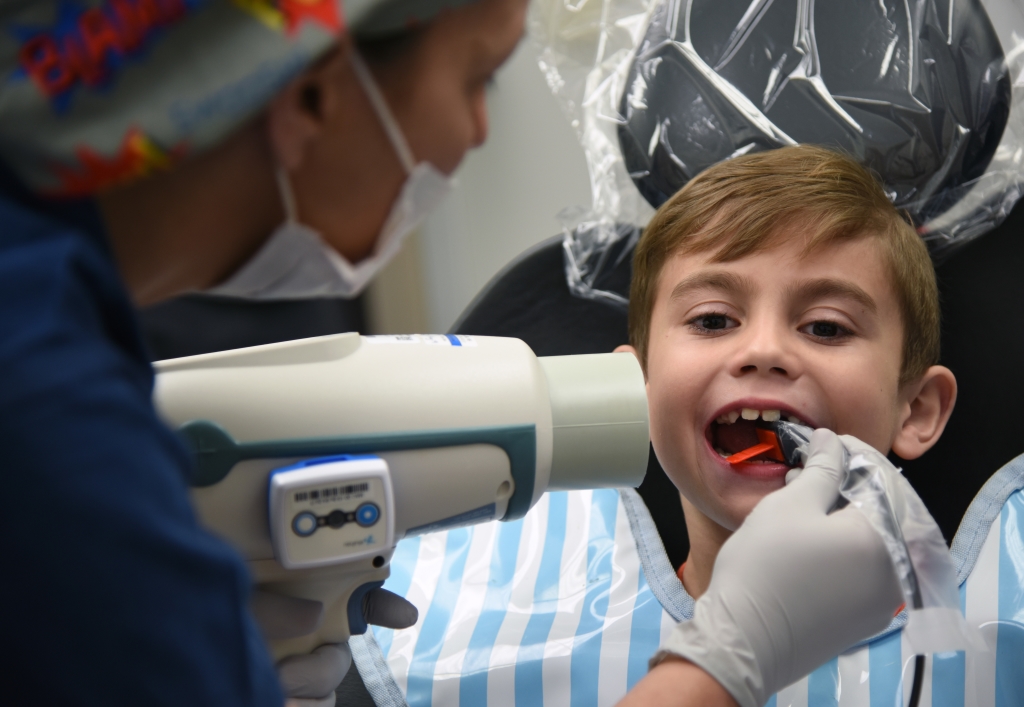Finding Relief: The Benefits of Visiting a Sleep Disordered Breathing Specialist Near Me
Do you worry about how your child sleeps at night? Do they struggle with a consistent bedtime routine, or do certain nighttime habits seem to interfere with their sleep quality? If so, then it may be worth looking into the possibility of sleep disordered breathing (SDB). Seeking out context and support from a Sleep Disordered Breathing specialist near me offers a range of benefits that can help relieve both parents and children alike. This blog post will discuss the advantages of visiting an SDB professional when it comes to improving your child’s quality of life.
What is Sleep Disordered Breathing (SDB)?
Sleep Disordered Breathing (SDB) is a broad term that encompasses various breathing difficulties experienced during sleep. It includes a spectrum of severity, ranging from occasional, loud snoring to a more serious condition called Obstructive Sleep Apnea (OSA). In OSA, individuals experience repeated episodes of partial or complete blockage of the airways during sleep, leading to disrupted breathing patterns. These interruptions can result in inadequate oxygen supply to the lungs, fragmented sleep, and potential health complications.
Notably, in children, these sleep disorders can have a significant impact on their growth, cognitive development, and behavior. The insufficient supply of oxygen during critical stages of growth and brain development can hinder their overall well-being. Recognizing the signs and symptoms of sleep-disordered breathing in children is crucial to ensure early intervention and appropriate treatment. By doing so, we can promote optimal health, proper growth, and cognitive functioning in children, setting them up for a brighter future.

Sleep Disorder Breathing Treatment
Signs and Symptoms of SDB in Children
Identifying signs and symptoms of SDB in children early is essential for their well-being. Some of the most common signs to look out for include:
- Snoring: Loud and consistent snoring is a common symptom of SDB. If you notice your child snoring more than two to three nights per week, this could be a sign of a possible sleep disorder.
- Mouth Breathing: Children with SDB often breathe through their mouths during sleep, which can lead to dry mouth and sore throat upon waking.
- Restless Sleep: Tossing and turning, frequent awakenings, or significant movement during sleep can be indicative of SDB.
- Sleep Terrors or Nightmares: Recurrent nightmares or night terrors can also be a sign of disrupted sleep due to SDB.
- Daytime Sleepiness: Despite lengthy sleep at night, children with SDB may still show signs of daytime fatigue or sleepiness.
- Behavioral Issues: Mood swings, irritability, hyperactivity, and difficulty concentrating can all be signs of SDB in children as the condition affects their sleep quality and, cnsequently, their daytime behavior.
- Slow Growth or Development: In severe cases, prolonged SDB can lead to slowed growth or weight gain due to the disruption of growth hormones produced during sleep.
Remember, every child is unique and may not exhibit all of these symptoms. If you suspect your child may be suffering from SDB, it is vital to consult a healthcare professional who can provide a proper diagnosis and treatment plan
Benefits of Visiting a Sleep Disordered Breathing Specialist Near You
Choosing to visit a breathing disorder (SDB) specialist can be one of the most beneficial decisions for your child’s health and well-being. Here are some reasons why:
- Expert Diagnosis: An SDB specialist has extensive training and knowledge in identifying and diagnosing sleep disorders. With their expertise, they can accurately assess your child’s symptoms, conduct appropriate sleep studies, and provide a definitive diagnosis.
- Personalized Treatment Plans: Every child is unique, and so are their sleep challenges. An SDB specialist can design a treatment plan tailored to your child’s specific needs, taking into account their age, health history, and severity of the disorder.
- Comprehensive Care: Sleep disorders can have various underlying causes. An SDB specialist can work alongside other healthcare professionals, such as nutritionists or psychologists, to provide a holistic approach to your child’s care.
- Latest Treatments and Techniques: SDB specialists are up-to-date with the latest research and developments in sleep medicine. This enables them to offer advanced treatment options that may not be available from a general practitioner.
- Long-Term Health Improvement: By addressing sleep disorders early, an SDB specialist can help prevent potential complications, improving not just your child’s sleep but their overall health and quality of life as well.
Remember, your child’s sleep quality is fundamental to their growth and development. If you suspect they may have a sleep disorder, don’t hesitate to seek help from an SDB specialist near you.
Tips for Finding the Right Sleep Disordered Breathing Specialist For Your Child
When looking for a Sleep Disordered Breathing (SDB) specialist for your child, consider the following tips:
- Research: Start by researching online or asking for recommendations from your child’s pediatrician. Look for professionals with positive reviews and a strong reputation in the field of sleep medicine.
- Credentials: Ensure the specialist has the necessary credentials and qualifications. They should be board-certified in sleep medicine, indicating they have undergone rigorous training and examinations.
- Experience: Consider the specialist’s experience, especially with child patients. A specialist with extensive experience treating children with SDB will likely be more adept at handling your child’s condition.
- Communication Style: It’s important that your child feels comfortable with the specialist. Look for one who has a caring, nurturing communication style that will put your child at ease.
- Treatment Options: Ask about the various treatment options they offer. This will help you understand whether they can provide a comprehensive, individualized treatment plan for your child.
- Location: Given that this may be a long-term partnership, choosing a specialist near your location could be advantageous. Proximity can make regular appointments more manageable.
Remember, finding the right specialist can take time and patience. Keep these tips in mind as you begin your search, and don’t hesitate to ask questions to ensure you’re making the best choice for your child’s health.

Sleep Disorder Breathing In Childs
Understanding Your Insurance Plan’s Coverage For Visiting an SDB Professional
When planning a visit to a Sleep Disordered Breathing (SDB) specialist, understanding your insurance coverage is crucial as it can significantly impact your out-of-pocket costs. Here’s a brief guide to help you navigate this:
- Understand Your Plan: Each insurance plan is different. Examine your plan’s documentation or speak to your insurance provider to understand what is covered and what isn’t.
- Check for In-Network Specialists: Insurers typically have a network of providers they prefer. Visiting an in-network SDB specialist is usually more cost-effective as insurance providers cover a larger portion of the costs.
- Look for Pre-approval Requirements: Some insurance plans may require pre-approval or a referral from a primary care physician before seeing a specialist. Ensure you meet these requirements to avoid unexpected costs.
- Understand Out-of-Pocket Expenses: Be aware of your deductible, copayment, and coinsurance amounts as these will directly affect your out-of-pocket costs.
- Consider the Cost of Sleep Studies: Sleep studies are often essential for diagnosing SDB. Check whether your insurance covers these tests and what portion you’ll need to pay.
Keep in mind, that the goal is to ensure your child gets the best possible care within your budget. If you’re unsure about anything, don’t hesitate to ask your insurance provider for clarification or seek advice from the billing department of the SDB specialist’s office. They often deal with various insurance plans and can be a helpful resource in understanding your coverage.
Questions to Consider When Seeking Out an SDB Specialist
When seeking out a Sleep Disordered Breathing (SDB) specialist, there are several questions you can ask to ensure you’re finding the best fit for your child’s needs. Here are some considerations:
- What is their experience with pediatric patients? Pediatric sleep medicine differs significantly from adult sleep medicine, and it’s crucial that the specialist has significant experience treating children.
- What is their approach to treatment? Do they have a holistic approach, considering factors like your child’s overall health, lifestyle, and emotional wellbeing?
- What types of sleep disorders do they specialize in? SDB encompasses a range of disorders, and it may be beneficial if the specialist has specific experience with your child’s condition.
- How do they stay current with the latest in sleep science research? Sleep medicine is a rapidly advancing field. It’s important that the specialist stays updated with the latest research and treatment techniques
- What is their process for diagnosing a sleep disorder? Understanding their diagnostic process can give you a sense of how thorough and scientific their approach is.
Remember, finding the right SDB specialist for your child is a crucial step towards improving their sleep, health, and overall quality of life. Don’t hesitate to ask these questions to make an informed decision.
Preparing For Your Visit and Making the Most Out Of It
Preparing for your visit to the Sleep Disordered Breathing (SDB) specialist can help you make the most out of the consultation. Here’s a guide to help you prepare:
- Document Your Child’s Sleep Patterns: Take note of your child’s sleep behaviors, patterns, and any difficulties they’re experiencing. This can provide valuable information to the specialist and aid in their diagnosis.
- Compile a Medical History: Prepare a detailed medical history of your child including any other health conditions, allergies, and medications they are currently taking. This can help the specialist consider all factors that might be affecting your child’s sleep.
- Prepare Questions: Write down any questions or concerns you have regarding your child’s sleep and treatment options. This ensures you don’t forget to ask them during the visit.
- Consider a Sleep Diary: If possible, maintain a sleep diary for your child in the weeks leading up to the appointment. Note down details like bedtimes, wake-up times, and any nighttime disturbances.
- Bring Along Comfort Items: If your child is scheduled for a sleep study, bring along familiar items from home, such as a favorite blanket or toy, to make them more comfortable.
Remember, being prepared can help you make the most out of your visit and ensure the specialist has all the necessary information to provide the best care for your child.

Visiting SDB Dentist
Outcome Expectations and Follow-Up Care for Better Sleep Quality
Outcome expectations and follow-up care play a pivotal role in improving your child’s sleep quality after contacting a Sleep Disordered Breathing (SDB) specialist. Here are a few things to keep in mind:
- Outcome Expectations: It’s important to understand that each child’s case is unique and outcomes can vary. While most children see improvements in their sleep quality, it may take time for significant changes to occur. The specialist can provide a more accurate timeline based on your child’s specific condition and treatment plan.
- Follow-Up Care: Regular follow-up visits are usually necessary to monitor your child’s progress and make any adjustments to their treatment plan. These visits may involve additional sleep studies or consultations.
- Ongoing Communication: Maintain open lines of communication with the specialist. If you notice any new symptoms or if your child’s condition changes, inform the specialist as soon as possible.
- Adherence to Treatment: Adherence to the treatment plan is crucial for the best outcomes. This includes any prescribed medication, lifestyle changes, or use of therapeutic devices.
- Home Care: Alongside medical treatment, implementing good sleep hygiene practices at home can significantly improve your child’s sleep quality. This includes regular sleep schedules, a conducive sleep environment, and limiting exposure to screens before bedtime.
Remember, improving sleep quality is often a gradual process that requires patience, persistence, and ongoing care. Always ask your SDB specialist any questions you may have about expectations and follow-up care for your child’s condition.
In conclusion, seeking out a Sleep Disordered Breathing (SDB) specialist for your child can greatly benefit their overall health and well-being. It’s important to consider the specialist’s experience, approach, and knowledge in pediatric sleep medicine when making a decision. Preparing for your visit and maintaining good communication with the specialist can help ensure the best possible care for your child. Keep in mind that outcomes may vary and ongoing care is necessary for long-term improvements in sleep quality. With the right specialist and proper care, your child can achieve better sleep and ultimately lead a healthier and happier life.
Evergreen Pediatric Dentistry
https://www.google.com/maps?cid=14720788683151219551
12910 Totem Lake Blvd NE #103, Kirkland, WA 98034, United States
(425) 814-3196
https://evergreenkidsdentist.com/


